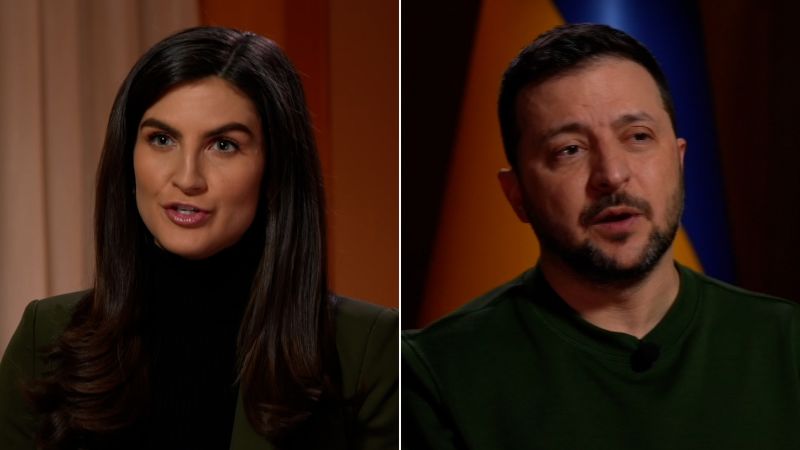Deep within the folds of international diplomacy and leadership, Ukrainian President, Volodymyr Zelensky, recently raised some pertinent remarks regarding former US President Donald Trump’s inability to comprehend the understanding of Russian President Vladimir Putin. His insights and thoughts shed light on the nuances of global politics and the distinct nature of battles fought at different fronts.
The differences in the struggle against Putin that Zelensky and Trump experienced are profound and stark. As Ukraine’s head of state, Zelensky has faced ongoing conflict with Putin and Russia, dealing with direct military aggression from them for the better part of his term. This imminent threat and constant combat form the basis of his viewpoint that to understand Putin, one must battle against him directly. Having fought Putin, Zelensky believes he has gained valuable insights into the Russian leader’s mindset and tactics, insights he feels Trump lacks.
Trump’s administration took a radically different approach to Russia and its president. Instead of direct confrontation, Trump opted for a diplomatic and somewhat cooperative stance towards Putin during his presidency. This distinct path does not necessarily mean Trump does not understand Putin; instead, it highlights the different forms of battles each leader has fought. Trump’s battle, so to speak, was more along the lines of international diplomacy, negotiations, and attempting to strike deals, far from the military confrontations Zelensky faced.
Trump’s understanding of Putin and his approach to dealing with Russia has been subject to criticism and analysis. His policy, often dubbed as The Trump Doctrine, sought to enact seemingly paradoxical measures, such as backing Putin in words while implementing stringent policies against Russia. This unconventional approach was a battle in its sense, requiring strategic foresight and political maneuvering.
However, Zelensky’s remark underlines the disparity between both their experiences facing Putin. Direct conflict often reveals an adversary’s character, tactics, and decision-making processes more profoundly than diplomatic and negotiated encounters. Zelensky’s perspective calls for a fundamental understanding that stems from facing off against an adversary in the spirit of preserving one’s nation’s sovereignty.
President Zelensky’s observation on Trump’s understanding of Putin then, rests on the rationale of firsthand experience and the wisdom extracted from the crucible of conflict. The differences in approach, the nature of the commander-in-chief’s role in the fight, and the context within each country could offer a unique perspective in addressing issues surrounding Putin.
Zelensky’s assertion about Trump’s understanding of Putin is not as much about disharmonizing their methods as it is about underlying the importance of varied perspectives. International relations and the strategies employed by leaders in dealing with counterparts rely heavily on context and personal understanding of adversaries.
In summary, Zelensky’s comment offers a comprehensive insight into the various angles from which different leaders perceive an intimidating figure like Vladimir Putin and the different kinds of battles they endure. Any simplistic or monolithic understanding falls short of comprehending the complexities involved in the leadership dynamics in this scenario. The statement emphasizes the necessity to consider the distinctive characteristics between tactical, direct conflicts, and the battles fought behind the scenes in political arenas.




